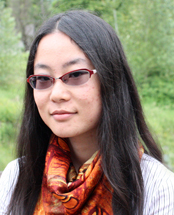By Jason Cruz
Northwest Asian Weekly

Emilia Liu
Emilia Liu has found her calling. “I’m really focused on social justice,” said the student of Seattle University School of Law. Her 2014 summer externship (like an internship, but she works outside the office) at the Refugee Women’s Alliance (ReWA) finds her helping those seeking U.S. citizenship. ReWA is a Washington nonprofit that offers a broad range of services to refugees and immigrants in 37 languages. According to ReWA, 58 percent of the people seeking help are Vietnamese, 22 percent are Somali, and the remaining 20 percent are from a variety of other ethnic groups. Founded in 1985, ReWA also provides a legal assistance program.
Liu was born and raised in southwest China, in Chongqiang. She graduated with a bachelor’s degree in law at Southwest University and decided to attend law school in the United States. She chose Seattle University because of its social justice program, she said. The law school has an Access to Justice Institute.
Liu’s parents are government workers in China. “They are very happy that I have found something that I feel passionate about,” she said. Liu has not seen her parents since leaving for school last August, but she stays in touch with them via Facetime,” she said.
Andre Olivie, ReWA staff attorney, has been impressed with Liu’s work so far. “I was interested in her background,” said Olivie, particularly, he pointed out, in regards to her previous work with immigration issues, as well as her language proficiency in the Chinese dialect of Mandarin. “She can relate to clients not familiar with the legal system.”
This summer, Liu will help advise clients on eligibility requirements for becoming a U.S. citizen, help them prepare them for interviews with immigration officials, and assist them with legal research.
While moving across the world in pursuit of a passion would be daunting to some, Liu seemed nonplussed about it, stating that China is similar to Seattle — Starbucks is still a constant in her life, she noted. The move was “not like a culture shock,” she said, adding that she knew English and feels that a lot of things in America are similar in China.
Liu said that studying abroad is very popular among Chinese students, although not many travel to other countries to study law. She indicated that the big difference between Chinese law and U.S. law is that Chinese law is based on codes, while much of U.S. law is based on cases. While she described law school as “challenging,” she likes the school. “My professors have been really helpful academically and spiritually,” she said, adding that they have also been helpful in providing guidance in her career interests and in life. Her favorite classes include torts, criminal law, and legal writing.
Liu likes her externship because she feels that she is helping people from different countries navigate the process of becoming naturalized. She realizes it may seem curious to some for a non-citizen to play that role, but says it gives her a unique perspective into helping others to become U.S. citizens. (end)
Jason Cruz can be reached at info@nwasianweekly.com.



